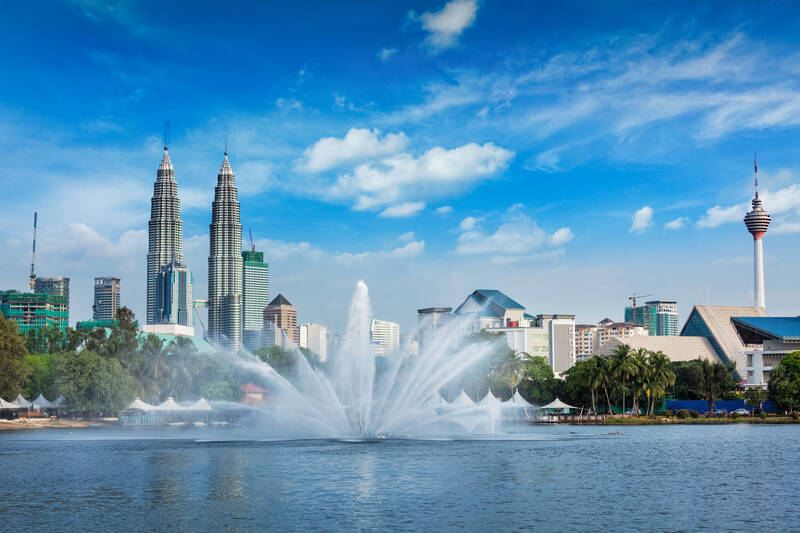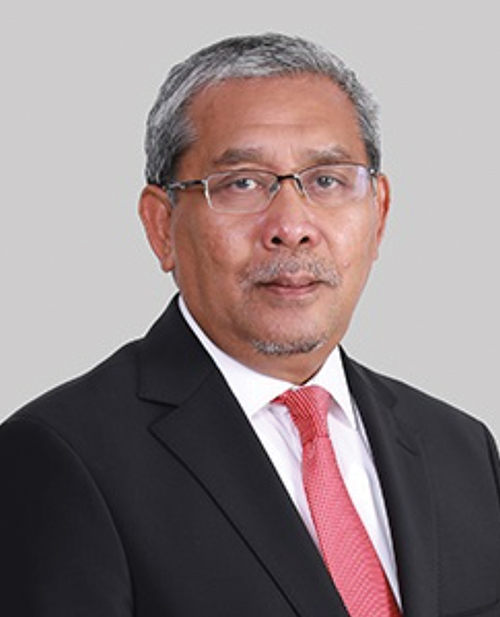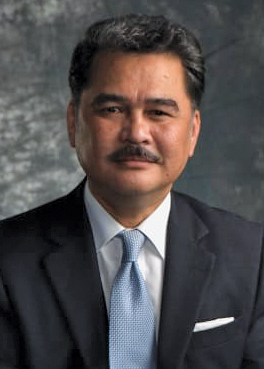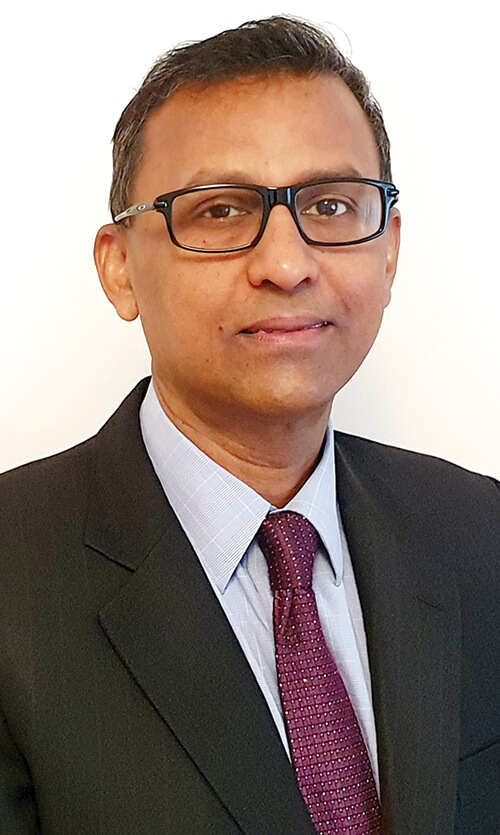Ready to Reach the Next Level? Malaysia Is Too
Swift and Sure in Its Response to the Global Pandemic and Downturn, the Malaysian Government Is Just as Swiftly Rolling Out a Familiar Welcome Mat to Global Corporate Investors

In an April 2021 speech, The Honourable Dato’ Seri Mohamed Azmin Ali, Malaysia’s Senior Minister and Minister of International Trade and Industry, said the country’s investment promotion efforts have successfully kept Malaysia on investors’ radar, noting that the country “is currently undertaking concerted efforts to review our existing policies and restructure our investment strategy to ensure that implementation of high-impact projects can be expedited.”
Site Selection has tracked plenty of recent high-impact projects in Malaysia from companies such as GE Engine Services, SK Holdings, GKN Aerospace, Plexus Manufacturing, Longi Green Energy Technology, medical device company Smith & Nephew, Nestle, Dexcom, UCT, LEM, Music Tribe and Leuze Electronics, among others. But the country is always seeking that next level, based on National Investment Aspirations that will guide it toward status as a regional investment hub.
Helping the country get there will be Arham Abdul Rahman, who in April 2021 became the new CEO of the Malaysian Investment Development Authority (MIDA). He recently responded to questions from Site Selection as Malaysia and the rest of the world emerge from the pandemic into a new era of FDI and economic development.

"Today, over 5,000 companies from more than 50 countries have made Malaysia their location for manufacturing and related services operations. Malaysia also serves as the gateway to ASEAN, one of the fastest-growing economic regions in the world with a market of over 620 million people."
— Arham Abdul Rahman, CEO, Malaysian Investment Development Authority (MIDA)
What are the top questions or concerns global corporate leaders have when they are considering investments in Malaysia?
MIDA CEO Arham Abdul Rahman: Generally global corporate leaders and MNCs look for cost-competitive, secure and stable locations to consider for facility investment. Today, over 5,000 companies from more than 50 countries have made Malaysia their location for manufacturing and related services operations. Malaysia also serves as the gateway to ASEAN, one of the fastest-growing economic regions in the world with a market of over 620 million people. Malaysia is also a member of the Regional Comprehensive Economic Partnership (RCEP), which presently encompasses 30% of the world’s population and around 30% of global trade.
Malaysia boasts a robust legal system, including intellectual property protection, and a well-developed financial sector. The country’s telecommunications and internet capabilities are among Asia’s most sophisticated. Seven international airports connect Malaysia to regional and global commercial hubs, while its seven seaports facilitate the rapid movement of goods. A modern highway system spans most of Peninsular Malaysia, and over 500 business parks are scattered across the country. The DHL Global Connectedness Index ranks Malaysia No. 2 in Southeast Asia and No. 12 globally for trade connectivity.

Malaysia’s young, educated workforce makes it one of the most competitive in Asia offering high-skilled talent.
Malaysia’s young, educated workforce makes it one of the most competitive in Asia offering high-skilled talent. The nation boasts over 500,000 students enrolled in roughly 500 colleges and 73 universities. Vocational and technical schools, polytechnics and industrial training institutions prepare young people for employment in various industrial trades. One of the most compelling factors is the multi-diversified cultures in Malaysia. And most of our citizens are English-speaking, which helps in ease of doing business in the region.
The IMF has projected the Malaysian economy will grow by 6.5% this year. Where are you already seeing this resurgence?
MIDA CEO Arham Abdul Rahman: MIDA will continue to be at the forefront to entice more quality investments in the areas of technology and innovation to position Malaysia as an alternative supply chain hub in Asia. Malaysia is always adopting a selective ecosystem and targeted approach to attract foreign investment, including from the United States. Malaysia places emphasis on high-technology and high value-added industries which cover, among others, advanced electronics, machinery & equipment and chemicals, as well as new growth areas in medical devices and aerospace in the manufacturing sector. For the services sector, Malaysia continues to target global service centres, principal hub, healthcare, education, logistics, green technology and R&D.

“After vetting numerous potential locations, we determined this site in Malaysia is a great fit for our future manufacturing needs.”
— Quentin Blackford, COO, Dexcom, June 2020, on the company’s first non-U.S. manufacturing facility for continuous glucose monitoring systems coming to Penang’s Batu Kawan Industrial Park
Penang has been seen as the hub for electrical and electronics and medical devices due to its strong supporting ecosystem anchored by major U.S. companies such as Intel, Jabil, Boston Scientific and Dexcom. The Malaysian East Coast is an ideal location for chemicals and petroleum, while Johor is more prominent for services-based activities.
MIDA, which represents the federal government, works closely with the state promotion agencies to attract targeted investments in a coordinated investment promotion approach that includes trade and investment missions, targeted one-to-one meetings, webinars and many more activities. Once investors choose the location, MIDA will continue to facilitate and handhold the project to ensure smooth implementation. MIDA is not only focusing on new foreign investment but at the same time driving existing companies to reinvest in high value-added products and undertake high-value activities or services.
What does the recent signing of the Regional Comprehensive Economic Partnership agreement mean for Malaysia’s economy?
MIDA CEO Arham Abdul Rahman: With the aim to establish a modern, comprehensive, high-quality and mutually beneficial economic partnership, RCEP is expected to strengthen the regional value chain and contribute to global economic growth and development. With the recent pandemic experienced globally, RCEP is poised as one of the country’s economic recovery tools in fighting against COVID-19. Malaysia sees plenty of opportunities and benefits that come along with the agreement:
Greater market access: The implementation of this agreement will ensure the continuous opening of markets as well as uninterrupted supply chain. Service providers, including e-commerce companies and SMEs, will be able to enjoy greater market access in terms of cross-border supply and establishing a commercial presence in the RCEP markets.

“With global challenges caused by the pandemic, Malaysia is open for business and remains conducive for foreign investors.”
— H.E. Dato’ Azmil Zabidi, Ambassador of Malaysia to the United States
Tariff elimination: Companies based in Malaysia are expected to benefit from tariff elimination and reduction of merchandise goods. The single consolidated tariff and rules will facilitate the export and import of goods among RCEP countries and strengthen trade flows.
Increased transparency: RCEP also pledges that the negative list approach adopted for both trades in services and investments will provide transparency on rules, laws and regulations concerning investments into the country.
Global experts have praised Malaysia’s well-coordinated response to the pandemic. How have you been able to navigate this public health crisis while at the same time supporting corporate growth and FDI?
MIDA CEO Arham Abdul Rahman: Despite the international border closures and strict standard operating procedures in place worldwide to contain the spread of COVID-19, MIDA continues to be responsive in undertaking innovative and aggressive promotion activities to entice FDI. Malaysia recorded total approved investments of US$40.7 billion last year in the whole economy, of which FDI accounted for $15.9 billion (39.1%) whereas DDI [domestic direct investment] accounted for $24.8 billion (60.9%). It is important to note that, amid pandemic, FDI accounted for 62% ($13.7 billion) of total approved investments in the manufacturing sector. Despite the challenging times, FDI increased by 3.9% compared to 2019. The total investments approved are for 4,599 projects which are expected to create 114,673 jobs. This includes several projects from the U.S., particularly in machinery and medical devices industries such as Lam Research and Dexcom. The U.S. ranked fourth in terms of major sources of FDI last year behind China, Singapore and Netherlands, with an investment of $900 million in the manufacturing sector.
Project Acceleration and Coordination Unit (PACU): Last year, MIDA introduced the Project Acceleration and Coordination Unit (PACU) to expedite and facilitate the implementation of approved projects. PACU provides advisory services to start-ups and conglomerates through its one-stop center concept, whereby investors are encouraged to discuss the challenges faced during operations and seek much-needed clarification and advice on government guidelines and procedures.
e-TRANS: MIDA, through its e-TRANS system, has launched and enhanced several online modules — namely faster approval for applications for e-manufacturing licenses, e-incentives, and import duty and/or sales tax exemptions — to expedite the execution of projects.
Stimulus package: The government also undertook major initiatives last year to bolster investment and cushion the impact of the pandemic through its four economic stimulus packages which involve allocation of US$77 billion to expedite the recovery. This includes a relocation incentive to promote foreign investment with an attractive 0% tax rate for a period up to 15 years in the manufacturing and services sectors.

“MIDA will continue to be at the forefront to entice more quality investments from the U.S. and to position Malaysia as an alternative supply chain hub for U.S. companies in Asia.”
— Nelson Samuel, Director, MIDA New York
One-Stop Center (OSC): Another game-changing initiative by MIDA was the setting up of a One-Stop Centre (OSC) to ease the movement of business travellers by expediting the approval of their entry into Malaysia to carry out their business activities. On March 23, 2021, the Business Travellers Center (BTC) was officially launched to welcome more investors into Malaysia. Located at KLIA, the BTC is now open for short-term foreign business travellers planning to carry out their business tasks in the country. The launching of the BTC marks a major milestone of the government’s unwavering mission to revive the economy and pave the way for an economic rebound in 2021. Complete information on OSC is now available at safetravel.mida.gov.my.
Corporate investors are attracted to stability and consistency. How has Malaysia been able to create a dependable business environment even when there is a change in political leadership?
MIDA CEO Arham Abdul Rahman: Malaysia has always adopted a consistent investment policy in attracting foreign direct investment [FDI] to the country and ensuring a vibrant and dynamic economy. Malaysia will continue to provide a business-friendly ecosystem and fine-tune policies to ensure sustainability of businesses in Malaysia. MIDA has assumed critical and pivotal roles in contributing significantly to Malaysia’s rapid industrial development in the last five decades, particularly in the manufacturing and services sectors, by promoting investments, both FDI and domestic direct investment [DDI]. MIDA’s strategies have gone through various transformations, in line with the changing dynamics of the global and domestic economic landscapes. MIDA has put a strong emphasis on attracting Industry 4.0 adoption, digital economy, e-commerce, AI and robotics. It is a major step to restart the economy and also bring Malaysia to the next level.
This Investment Profile was produced under the auspices of the Malaysian Investment Development Authority (MIDA). For more information about investing in your profit centre in Asia, visit mida.gov.my.





